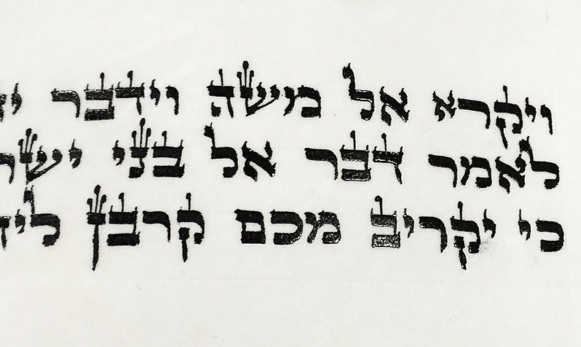
The book of Leviticus, in Hebrew Vayikra begins, as you might imagine, with the word: Vayikra. “God called to Moses…” You’ll notice in the picture above that the final letter of Vayikra, the aleph is written smaller than all the other letters. In noticing this you’ll join every Jew, bible scholar, and person that has ever studied the Hebrew Bible. Much ink, dried over thousands of years, has been put to paper to explain the little aleph. I’m writing now without having refreshed myself on this beautiful eon spanning conversation because I’m pretty sure that what I see in the aleph is what many others have seen: a clarion call for the importance of being humble.
Slowly but surely folks are catching on to the idea that humility is more closely tied to self-awareness and sense of place amidst the vastness of the universe than it is to the idea of being meek, subservient, or overly deferential. For that reason, humility is one of the middot (character traits) that can offer us the greatest insight into what our days and years can mean.
Let’s consider a few of the words that start with aleph. And let’s consider them based on the hypothesis that we can’t fully consider them unless we have cultivated some measure of humility in ourselves.
Eish and Adam— human being.
Ahavah— love.
Emet— truth.
Emunah— faith.
Ani— “I.”
Osher— joy.
Adamah and Eretz— earth and land.
Elohim— one of God’s most frequently used names.
If we haven’t downsized our aleph then I think it’s fair to say that we will never fully appreciate core aspects of our existence like the ones listed above. Humility is a prerequisite for squeezing through the gates of humanity and finding our way into a world of deeper meaning and understanding.